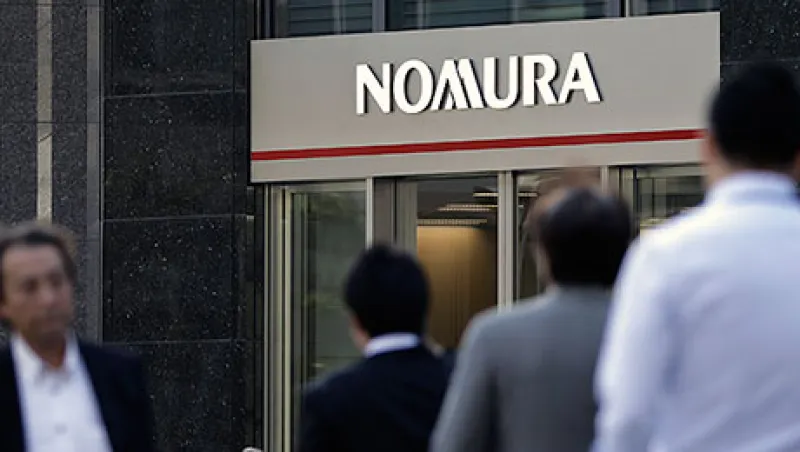Nomura has topped Institutional Investor’s ranking of Japan’s Top Corporate Access Providers, with investors voting the firm best at connecting with company executives for a fifth straight year.
Nomura shared the top spot with Mizuho Securities Group last year, narrowly coming out first in this year’s survey of more than 570 investors overseeing $990 billion in Japanese equities. The investors ranked the top sell-side firms in 26 industry sectors based on eight attributes, including arranging site visits, hosting investor conferences, and organizing road shows. Each firm’s attribute scores were added together in each sector to form the firms ranked first through third place.
Nomura collected 26 total team positions, 18 of which were first place. Mizuho took second place overall with 25 total team positions, and Daiwa Securities Group was third with 17 positions. For the first time, II also asked corporate and investor relations professionals to provide their view on which sell-side firms connect best with investors. Nomura, Mizuho, and Daiwa repeated their ranking on the corporate facet of the survey.
Environmental, social, and governance issues, or ESG, are becoming more popular domestically, with many asset managers pushing to establish ESG investment teams and departments at companies, according to Shinji Wakizaka, Nomura’s head of client relations management. “This has led to a rapid increase in meetings focused on ESG, separate from ordinary IR meetings,” Wakizaka said. “There is a high possibility that this will be the next big wave for corporate access.”
Despite investors pushing ESG, Wakizaka says companies are still lagging in implementation and awareness. To fill this gap, Nomura plans to host a Japan ESG Focus Day in Singapore, which it says will be the first in the industry.
During one-on-one or small group meetings between investors and corporate executives, Daiwa’s head of corporate access Kazuki Kawashima, has noted increasing interest in corporate governance and other topics like capital return to shareholders. Corporate governance continues to be on the forefront of minds two years after Japan unveiled new regulations to make companies more transparent to shareholders. One of the requirements is that large and medium-size companies must have two independent directors.
Global investors continue to bring up issues of disclosure and corporate governance of Japanese corporates, which is often weak compared with global peers, said Yuki Maeda, global head of Pan-Asian corporate access for Mizuho.
Maeda explains corporate executives are still trying to identify the direction the market is moving with regards to the content and method of disclosure, noting that companies are cutting down on preview meetings before earnings releases. “Many corporates do not know to what extent they can release numbers, so many are being conservative and not releasing numbers at all,” Maeda said.
The Daiwa Investment Conferences, held in Tokyo, Hong Kong, London, New York, and San Francisco each year, offer updates on Japanese and Asian companies. At the Tokyo conference in February, for example, Daiwa touched on its expectations for U.S. growth under President Trump’s administration and its outlook for Japan’s stock market, according to presentation materials.
“During group sessions, [the Bank of Japan’s] monetary policy, expected impact from legalizing casinos, among other subjects, have been topics of discussion,” Kawashima said.
Nomura’s Wakizaka noted last year that companies were interested in meeting a wider variety of investors than ever before, such as hedge funds outside of Japan. It turns out that trend may have been short-lived.
“We are starting to see a reverse trend where companies are shifting their focus back to long-only asset managers and existing shareholders that hold company shares for long-term investment purpose,” Wakizaka said.






